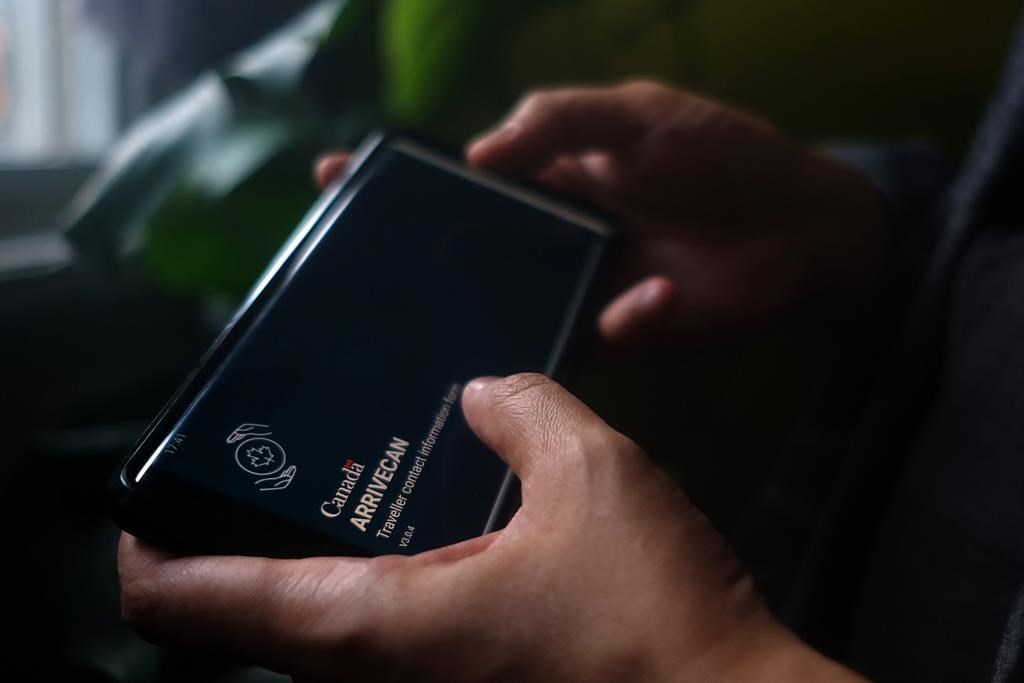‘False’: Main contractor on ArriveCan app disputes auditor general’s finding

Posted Mar 13, 2024 04:00:00 AM.
Last Updated Mar 13, 2024 02:24:29 PM.
OTTAWA — The company that held a contract for the build of the ArriveCan app said it was paid millions less than what Canada’s auditor general reported last month.
GC Strategies partner Kristian Firth appeared at the government operations committee Wednesday alongside his lawyer, where he testified that inaccurate reporting about his company has led to threats against him and his family.
Firth said he “painstakingly” went through invoices and spoke with contractors and concluded that GC Strategies was paid approximately $11 million for the app’s development.
He said his company kept a $2.5-million commission for its work over two years, while the rest of the money went to other contractors hired to help develop the app.
The auditor general reported last month that the overall cost of the app was more than $60 million and GC Strategies was paid more than $19 million, but the government’s record-keeping was inadequate.
Firth also said “virtually everything” the media has reported about his company is “false.”
He said GC Strategies held three contracts related to the COVID-19 pandemic, but none of them were narrowly focused on ArriveCan — so he said he can understand why it was hard for the auditor general to determine the total cost.
GC Strategies invoiced the Canada Border Services Agency close to $22 million over three years for three pandemic-related projects, he said, but it wasn’t all for the app.
“I’m disputing that $19.1 million is completely attributable to the ArriveCan application build,” Firth said.
He told the committee that he provided information to auditor Karen Hogan that wasn’t reflected in her final report, and said there are lots of reasons why there could be discrepancies between her number and his.
Hogan didn’t immediately respond to a request for comment.
Firth said the auditor’s estimate included figures that had been billed up until May 2023, even though the app’s build was finished in July 2022.
“So there’s another year’s worth of billing there which may not have been ArriveCan,” Firth said.
He testified that the auditor wouldn’t have had access to the detailed records he has, though he said he has submitted those to the committee three times.
Aside from the main contract, the government issued task authorizations to carry out work for certain aspects of the app. But not all the task authorizations issued for the project were used, Firth said.
“So you may see one for $200,000 but only $120,000 was actually used,” Firth said.
“This is, again, where these inflated numbers can come from, because there’s just not the financial system in place that can do real-time health checks.”
Wednesday marks the third time Firth has testified before MPs about the issue. His business partner Darren Anthony is set to meet the committee on Thursday.
Firth said the two were separated by the committee after they had asked to appear off-camera. He said after past appearances at House committee meetings, people have published pictures of their homes, journalists have turned up to their private property, and strangers have taken photos of their children in hockey change rooms.
“We can only conclude that this televised nature of today’s meeting aids in political goal-scoring, while simultaneously using us as media fodder at the expense of our health and the safety of our families,” Firth said.
The government launched the ArriveCan app in April 2020 to track health and contact information for people entering Canada during the pandemic, and to digitize customs and immigration declarations.
The two IT recruiters did not build the app, but were tasked by the federal government with assembling a team to complete certain parts of the project.
Firth previously testified that GC Strategies was not responsible for the direction of the project, objectives, budgeting or cost controls and that it was the federal government that managed the overall project.
Firth said Wednesday that the costs continued to rise because workers had to constantly adapt to government mandates during the pandemic, like requiring proof of vaccination for travel, which resulted in changes to the design.
That would also result in an amendment to the contract, Firth said.
“Every time there was an amendment it was published on Buy and Sell which 635 companies can challenge, and it was also put in front of the House, and MPs voted in the House every single time there was an amendment,” Firth said.
“Everybody knew the prices were rising.”
In her report last month, Hogan found that three government organizations that managed the project failed to keep accurate financial records and didn’t deliver the best value for taxpayer dollars spent.
She said Ottawa drove up the cost of the project by relying on external contractors because it didn’t have the resources needed to develop the app during the onset of the COVID-19 pandemic.
Last week, the government suspended the security status of GC Strategies, which prevents it from bidding or working on government contracts.
This report by The Canadian Press was first published March 13, 2024.
Mickey Djuric, The Canadian Press








